CLP 2024 - Friday: Foundation | Poster Awards | Plenaries | Hackett | Dlin/Fischer | Katon | BOPs | Awards Toast | Walking Tour | Yesterday
YESTERDAY at the Annual Meeting
Plenaries Focused on Whole Person Care
Plenary speakers advocated care for the Whole Person—the physiology of the stress response and how it effects the mind and body.

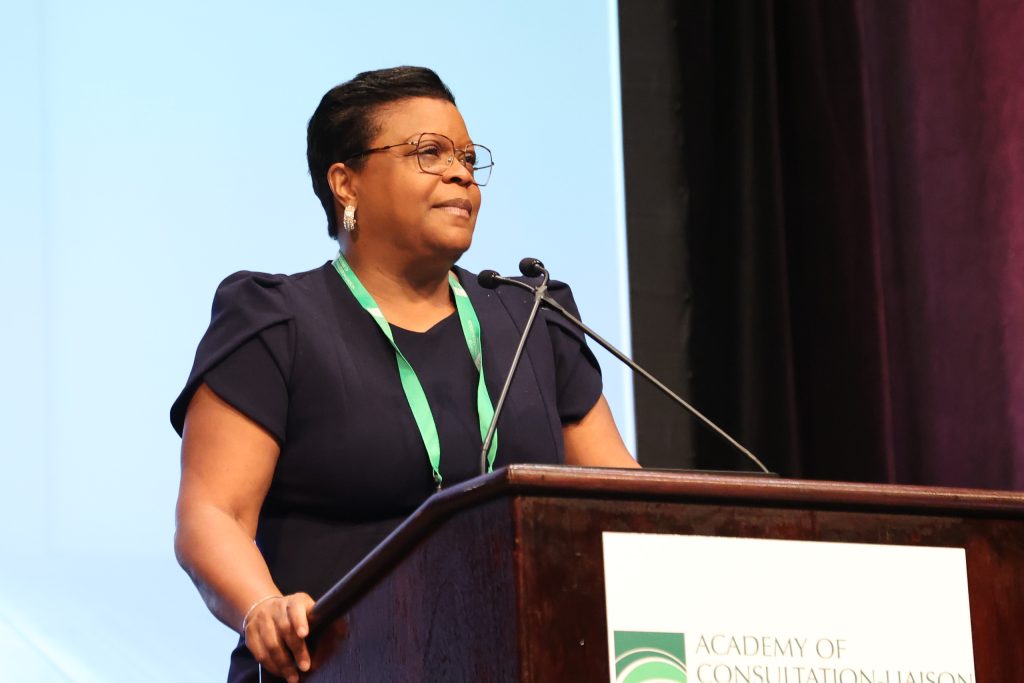
Marketa Wills, MD, MBA
APA’s CEO and medical director, Marketa Wills, MD, MBA, reported on APA current activities including public opinion polling; the now established Spanish Language Communications Initiative; and APA’s priority to enhance state funding for behavioral health care.
In her presentation, Crystalizing a Vision: Leading Psychiatry Forward, she highlighted her vision for collaboration between ACLP and APA members to unleash synergies between the associations.
Dr. Wills described her own commitment to mind-body medicine—and mentioned she was a yoga teacher; her student classes to date all comprised APA staff!
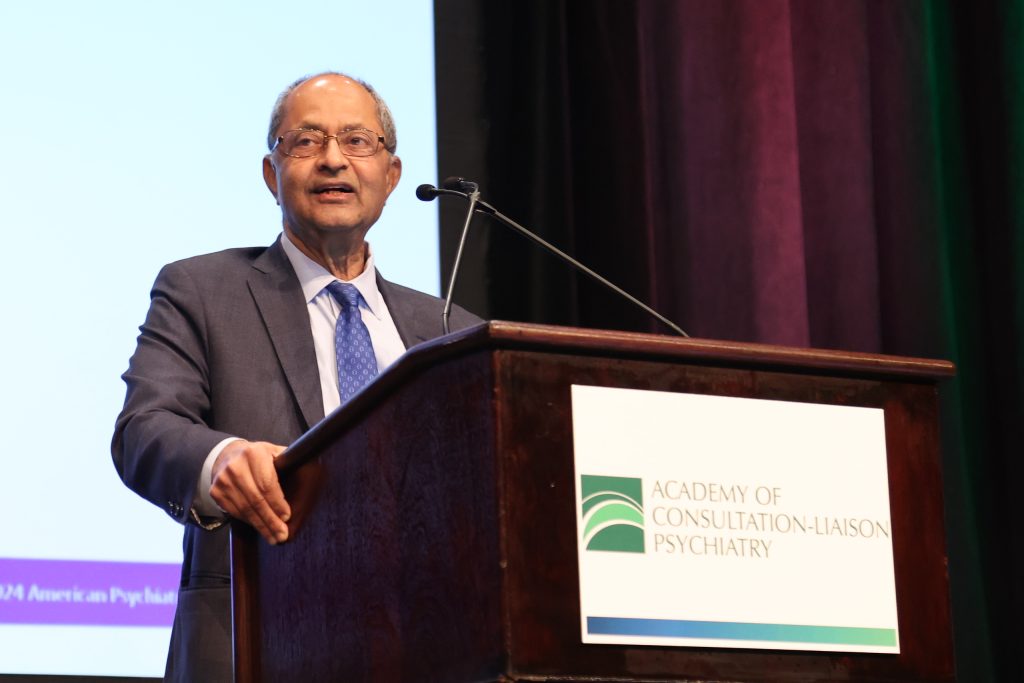
Ramaswamy Viswanathan, MD, DrMedSc, FACLP
APA president, Ramaswamy Viswanathan, MD, DrMedSc, FACLP, presented Lifestyle for Positive Mental and Physical Health in which he described how factors such as types of physical exercise and activities, restorative sleep, types of nutritional interventions, stress amelioration, social connectedness, and avoiding harmful substances, have significant effects on prevention or improvement of mental and physical disorders.
Sourcing global research, Dr. Viswanathan described, for example, life expectancy gains from different activities based on research in Copenhagen—and how tennis scored gains of 9.7 years compared with non-competitive activities such as jogging (3.2 years), swimming (3.4), and cycling (3.7).
He pointed to the loss of life expectancy by as much as 10-25 years among those with psychiatric illnesses who had poor health lifestyles. He quoted research that showed that 80% of health care spending in the US was attributable to the treatment of people with unhealthy lifestyles. And he described research indicating the increased volume of hippocampus from exercise, the reduction in stroke risk from nutritional dietary interventions, the benefits of restorative sleep, and how patients can adopt small measures to improve their life expectations, such as eating broccoli when cooked appropriately to protect against cancer.
ACLP member Dr. Viswanathan has this subject as his theme for his APA presidential year and is lecturing on it globally.
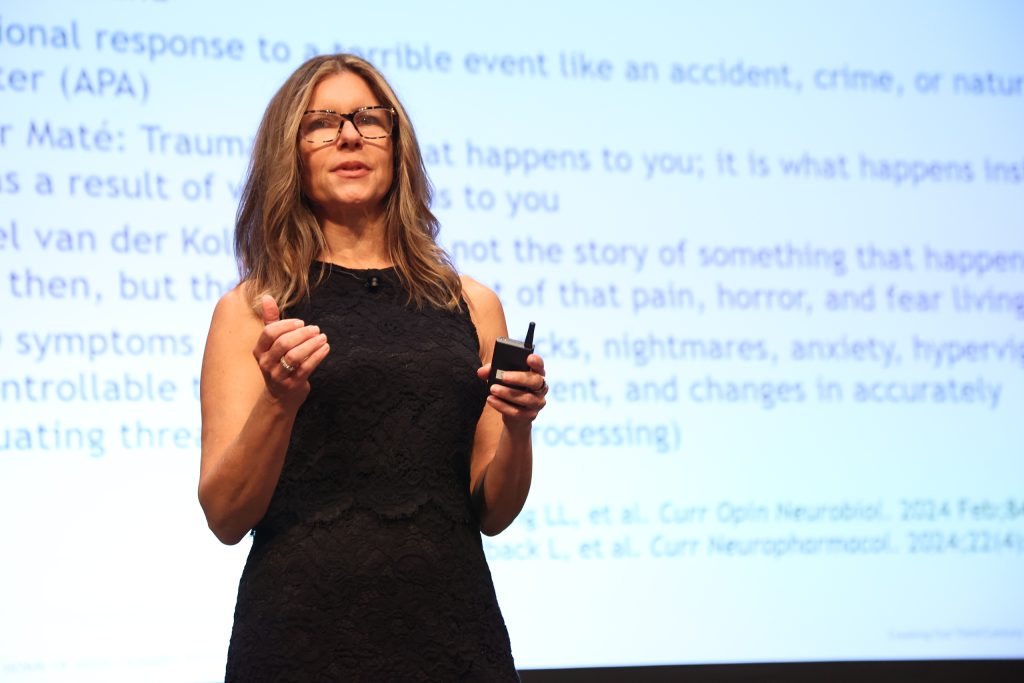
Sara Gottfried, MD
Sara Gottfried, MD, director of Precision Medicine, Marcus Institute of Integrative Health, Department of Integrative Medicine & Nutritional Sciences, Thomas Jefferson University, presented Novel Approaches to Trauma and Toxic Stress.
Emphasising the strategic value of biomarkers in diagnoses and treatment criteria, she described how conventional medicine falls short when diagnosing and treating toxic stress and trauma.
Many people suffer from symptoms such as severe fatigue, brain fog, aches and pains, abdominal pain, digestive problems, hair loss, insomnia, depression, and anxiety—and don’t realize their psycho-immuno-neuro-endocrine system is at the root.
Dr. Gottfried shared experiences she encountered with many of her patients downstream from toxic stress, including disruption of the hypothalamic-pituitary-adrenal axis, disturbed hormonal levels, diminished cerebral metabolism, lower heart rate variability, and autoimmune disease. And she described interventions, such as measuring cortisol levels and heart rate variability, as viable treatments to improve outcomes.
Come La Cabana
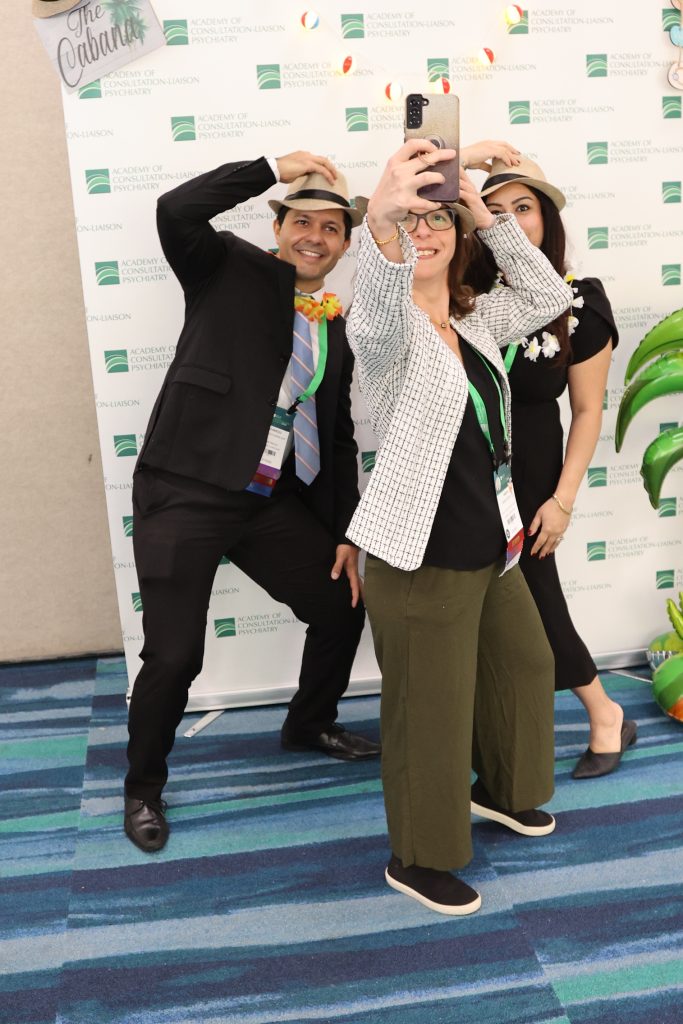
Organiser Paulo Sales, MD, and visitors get in the mood.
Delegates celebrated the rich Latino culture at La Cabana—a hub for networking, relaxation, and creativity! It’s open again today, 10:30 AM to 3:30 PM in Riverfront Hall South.
Merits of Dietary Intervention
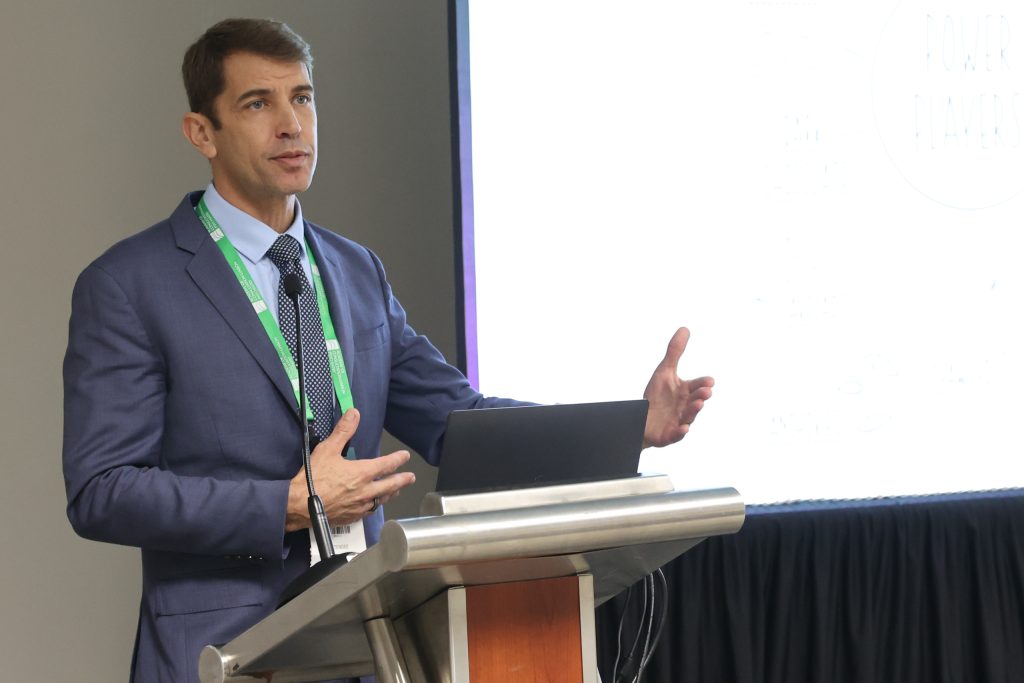
Drew Ramsey, MD
Evidence Connecting Food Choices to Brain Health—the merits of dietary intervention by C-L psychiatrists at the bedside was the umbrella title of presentations by nutritional specialists.
C-L psychiatrists may be overlooking easily treatable, micronutrient deficiencies in patients, such as iron which is associated with anxiety, said Uma Naidoo, MD, FAPA, director of Nutritional, Lifestyle & Metabolic Psychiatry at Harvard Medical School. She described how patients can prepare healthy dishes—alongside data supporting the value of ingredients—including her own Anti-Anxiety Nutritional Psychiatry Plate.
Drew Ramsey, MD, founder, The Brain Food Clinic, described how mental health clinicians can incorporate nutritional assessment and guidance into clinical care. Several randomized controlled clinical trials have explored the use of nutrition interventions in the treatment of clinical depression.
Philip Muskin, MD, MA, LFACLP, professor of Psychiatry, Columbia University, revealed How this stuff actually works. He reviewed what epigenetics reveals about the mechanisms by which exercise, nutrition, and stress impact on our genome.
Showcase of Innovation
A record number of submissions for both posters and oral papers this year resulted in more than 450 poster abstracts and 119 brief oral paper abstracts reviewed for CLP 2024. The poster showcase yesterday consisted of 233 posters—the largest number ever at an ACLP Annual Meeting—many from trainees. See poster winners this issue for full results.
Welcome home!
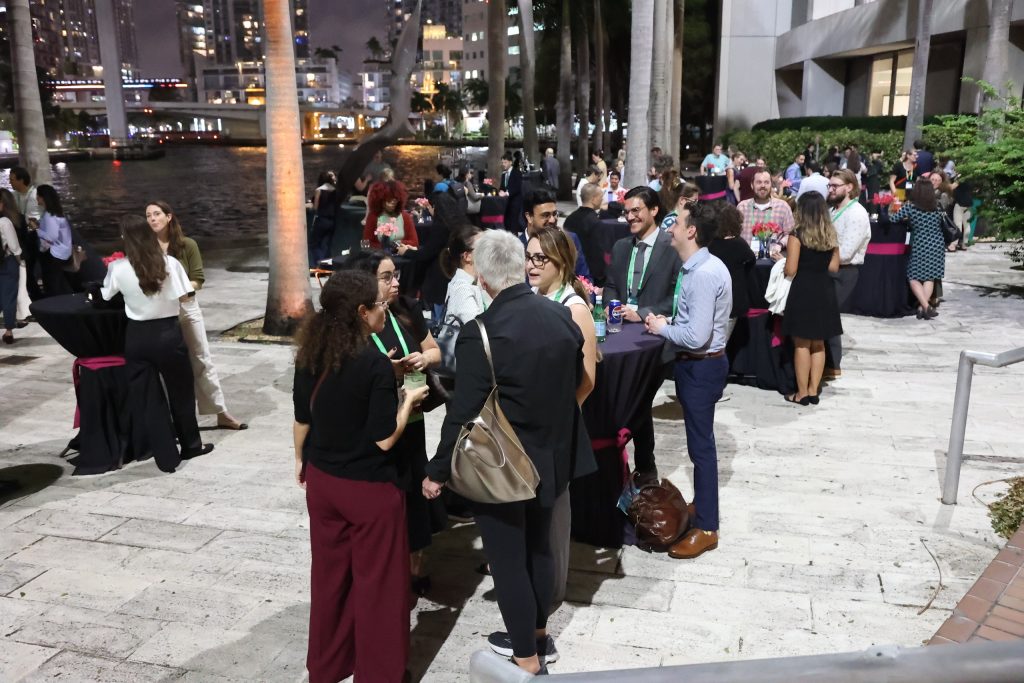
Delegates celebrated coming together for the Annual Meeting with live music and finger foods at the welcome reception.
Meet, Greet and Learn
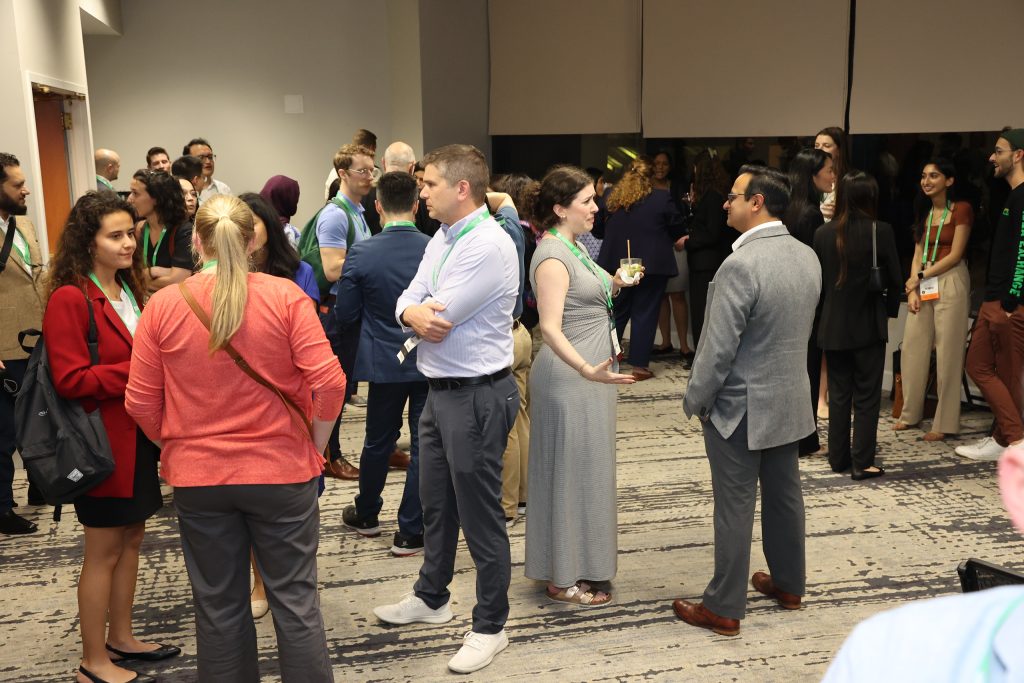
The ACLP Medical Student Education and Residency Education Subcommittees welcomed medical students and residents to the Annual Meeting. The meet-and-greet was open to those wanting to learn more about C-L Psychiatry or training in Psychiatry.
